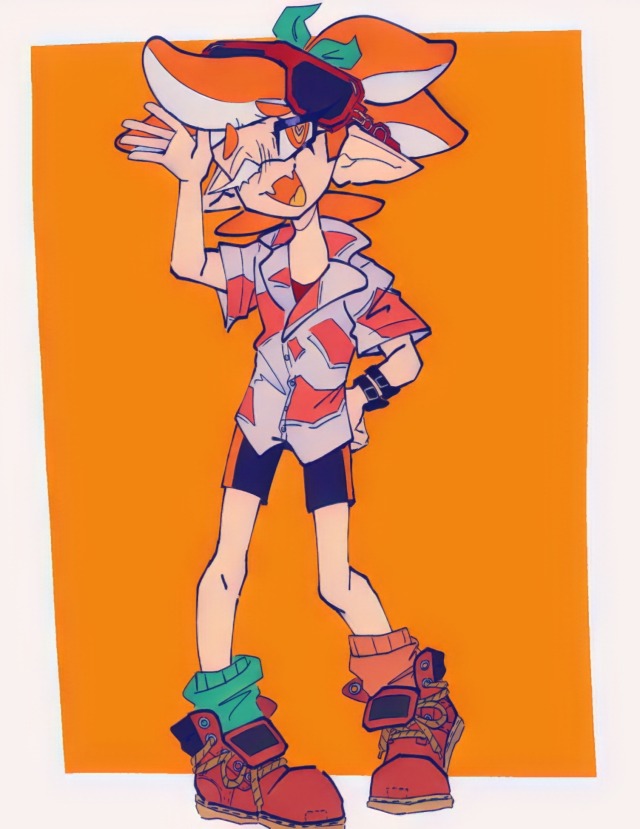

I put myself on a pretty religious schedule of rising at 4 a.m.
#INKLING GIRL GROWN UP FULL#
I had great support from my sister and that gave me the courage to resign from ESPN and work on my book full time. And he said, “I think you need to claim your space as a Black woman in pop music and write about your experiences as it relates to the experiences of the women that you have so beautifully written these biographical essays about.” And after a little resistance, I took that advice. But then when I started working again with (publisher) Chris Jackson at One World, he was asking me why I wasn’t finishing the book, and I had no good answer for him, especially because I wanted to finish it. It didn’t leave a lot of time for doing my best work outside of the main job. I was teaching and then I was at ESPN, and I was doing a lot of writing, editing, and producing at ESPN. At first, it seemed like a cool project that I needed to do, so I would devote the time to it, and that was convenient for me. It changed as I became more committed to getting it done. What was your creative process like in curating the book? I can’t imagine the difference, or I should say, I can very clearly imagine, how much more different it would be if he was a white male. It’s insane the difference, and he’s a Black man. And so I’m privy to what his salary has always been as compared to what mine has always been. And I say this because I’m married to a man who has had the same jobs that I’ve had in this business. It’s affected me financially over the course of my career. It’s never not affected me and it’s not that I’m guessing. It’s affected me in all ways on all days. How has being overlooked shaped your life personally? And yes, I have practiced as often as I can, I practice it now, I practiced it then, and I will practice it in the future. I feel like advocacy is a banner of truth and it’s getting to what’s actually real. So I don’t think that advocacy is a bad word. I also just knew experientially how it was making me as a Black woman feel. So it didn’t take a genius to realize that’s what was coming with rap. "Shine Bright: A Very Personal History of Black Women in Pop," by Danyel Smith, Roc Lit 101, 320 pp. I had an inkling of what was to come based on the history of the music that Black people create, whether it’s rhythm and blues, jazz, soul, or pop, we continue to create things that influence global culture. I knew that not to be true. I knew the power of rap almost from its beginnings. It wasn’t a “real art form.” It was “terrible.” Everybody was going to go downhill into hell immediately because of the sound of the music. When I first got into my career, everyone – and by everyone I mean the mainstream media and culture – was referring to hip-hop as a fad. I felt very similarly about the art of hip-hop. What that means for me is I know just how much of all of that has been overlooked with regard to Black people and in particular Black women. Advocacy means I have a familiarity with the culture, the context, the characters, the situations, and the history. So often, what gets attached to the idea of advocacy is that somehow you are not being fair to all parties, or that you are somehow biased toward one group. You’re speaking about service through reporting, but also advocacy. That’s a long way of saying that “Shine Bright” is a service to the culture and I feel called to it. Over the course of my career, it feels like I’ve been in service to the culture in one way or another. It began to feel like a pull, like a duty to create the book it was similar to the pulls that I felt working in editorial and working for publications like Vibe. There are many things in the world of music, journalism, and music criticism that are written around, and I wanted to approach them directly, particularly in regard to Black women in pop music. I don’t know if I wanted to write it as much as I felt there were things that needed to be said. She spoke recently with the Monitor about her determination to set the record straight, her commitment to journalism and advocacy, and how Black women are the linchpin of pop music. Motivated by a determination to set the record straight, journalist and author Danyel Smith stakes a claim for the pivotal role of Black women in pop music.


 0 kommentar(er)
0 kommentar(er)
